Filter by
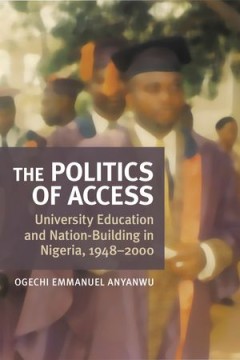
The Politics of Access : University Education and Nation Building in Nigeria,…
Access to university education in Africa was inadequate during the colonial period. With independence, various African countries moved away from the elitist colonial education system by embarking on programs designed to provide education to all, regardless of class, ethnicity, or creed. Nowhere in Africa has the question of access to university education reached such a crescendo of concern and …
- Edition
- -
- ISBN/ISSN
- 9781552385807
- Collation
- -
- Series Title
- -
- Call Number
- 370 ANY p
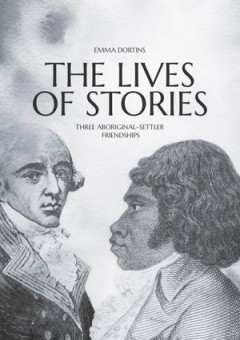
The Lives of Stories: Three Aboriginal-Settler Friendships
The Lives of Stories traces three stories of Aboriginal–settler friendships that intersect with the ways in which Australians remember founding national stories, build narratives for cultural revival, and work on reconciliation and self-determination. These three stories, which are still being told with creativity and commitment by storytellers today, are the story of James Morrill’s adopti…
- Edition
- -
- ISBN/ISSN
- 9781760462406
- Collation
- -
- Series Title
- -
- Call Number
- 994 DOR l
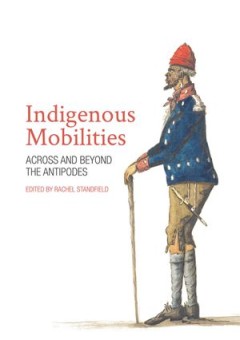
Indigenous Mobilities: Across and Beyond the Antipodes
This edited collection focuses on Aboriginal and Māori travel in colonial contexts. Authors in this collection examine the ways that Indigenous people moved and their motivations for doing so. Chapters consider the cultural aspects of travel for Indigenous communities on both sides of the Tasman. Contributors examine Indigenous purposes for mobility, including for community and individual econ…
- Edition
- -
- ISBN/ISSN
- 9781760462147
- Collation
- -
- Series Title
- -
- Call Number
- 911 IND i
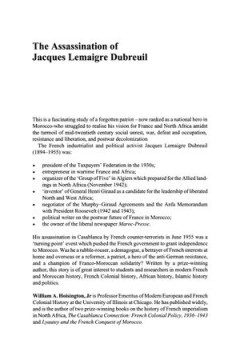
The Assassination of Jacques Lemaigre Dubreuil
This is a political biography of the French industrialist and political activist Jacques Lemaigre Dubreuil (1894-1955), president of the Taxpayers' Federation in the 1930s, entrepreneur in wartime France and Africa, organizer of the 'Group of Five' in Algiers which prepared for the Allied landings in North Africa (November 1942), 'inventor' of General Henri Giraud as a candidate for the leaders…
- Edition
- -
- ISBN/ISSN
- 9780203004968
- Collation
- -
- Series Title
- -
- Call Number
- 960 HOI a

Economic Diversification and Growth in Africa : Critical Policy Making Issues
This book presents a coherent framework for assessing economic policy making in developing countries, with special reference to those in Africa. The chapters focus on policy making issues in three critical areas that are of major importance in the African context: capacity building for domestic resource mobilization; regional integration in Africa and intra-regional trade; and export diversific…
- Edition
- -
- ISBN/ISSN
- 9783319308494
- Collation
- v, 129 pages
- Series Title
- -
- Call Number
- 960
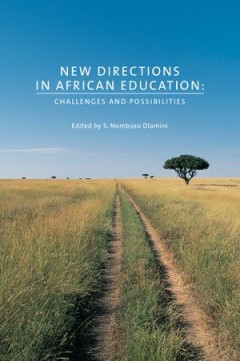
New Directions in African Education : Challenges and Possibilities
It has been said that education in post-colonial Africa is in a state of crisis. Policies and practices from Eurocentric colonial regimes have carried over, intertwining with challenges inherent in the new political and economic climate. Leaders have done little to remedy the malfunctioning education system, and even where attempts have been made, they have overwhelmingly been shaped by commerc…
- Edition
- -
- ISBN/ISSN
- 9781552385647
- Collation
- -
- Series Title
- Africa : Missing Voices
- Call Number
- 370 DLA n
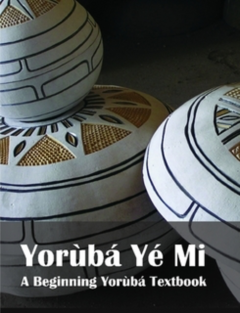
Yorùbá Yé Mi : A Beginning Yorùbá Textbook
The Yorùbá Yé Mi textbook, combined with an open access, multi-media website, is an interactive, communicative, introductory Yorùbá program. It provides college/university students with basic listening, speaking, reading and writing skills of language learning in Yorùbá. It exposes the learner not only to Yorùbá language in meaningful situations but also to the culture of the Yorùbá-…
- Edition
- -
- ISBN/ISSN
- 9781937963026
- Collation
- -
- Series Title
- -
- Call Number
- 400 MOS y
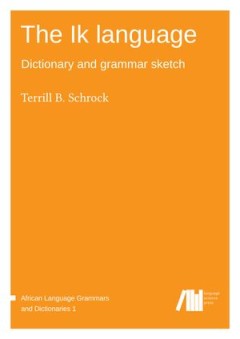
The Ik language : Dictionary and grammar sketch
This book is a dictionary and grammar sketch of Ik, one of the three Kuliak (Rub) languages spoken in the beautiful Karamoja region of northeastern Uganda. It is the lexicographic sequel to A grammar of Ik (Icé-tód): Northeast Uganda’s last thriving Kuliak language (Schrock 2014). The present volume includes an Ik-English dictionary with roughly 8,700 entries, followed by a reversed English…
- Edition
- Vol. 1.0
- ISBN/ISSN
- 9783944675961
- Collation
- -
- Series Title
- African Language Grammars and Dictionaries 1
- Call Number
- 400 SCH i

Pursuing Justice in Africa Competing Imaginaries and Contested Practices
Pursuing Justice in Africa focuses on the many actors pursuing many visions of justice across the African continent—their aspirations, divergent practices, and articulations of international and vernacular idioms of justice. The essays selected by editors Jessica Johnson and George Hamandishe Karekwaivanane engage with topics at the cutting edge of contemporary scholarship across a wide range…
- Edition
- -
- ISBN/ISSN
- 9780821446485
- Collation
- -
- Series Title
- -
- Call Number
- -

A Geographical Survey of Africa Its Rivers, Lakes, Mountains, Productions, S…
James MacQueen (1778–1870) was a British geographer and also one of the most outspoken critics of the methods of the British anti-slavery campaign in the 1820s and 1830s. Although he never visited Africa, he became an acknowledged expert on the continent, through reading all available accounts, ancient and modern, as well as interviewing slave merchants while managing a sugar plantation in th…
- Edition
- -
- ISBN/ISSN
- 9781139034562
- Collation
- -
- Series Title
- Cambridge Library Collection - African Studies
- Call Number
- -
 Computer Science, Information & General Works
Computer Science, Information & General Works  Philosophy & Psychology
Philosophy & Psychology  Religion
Religion  Social Sciences
Social Sciences  Language
Language  Pure Science
Pure Science  Applied Sciences
Applied Sciences  Art & Recreation
Art & Recreation  Literature
Literature  History & Geography
History & Geography